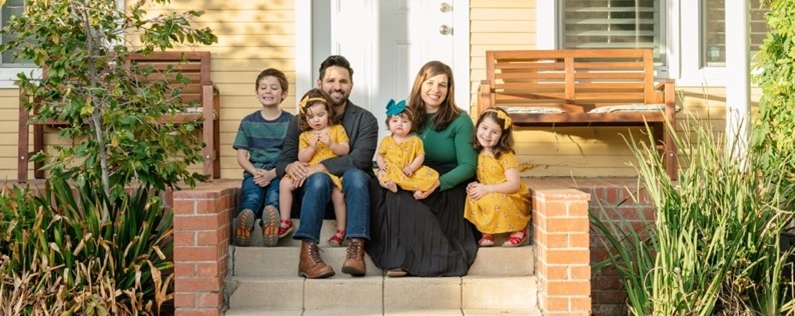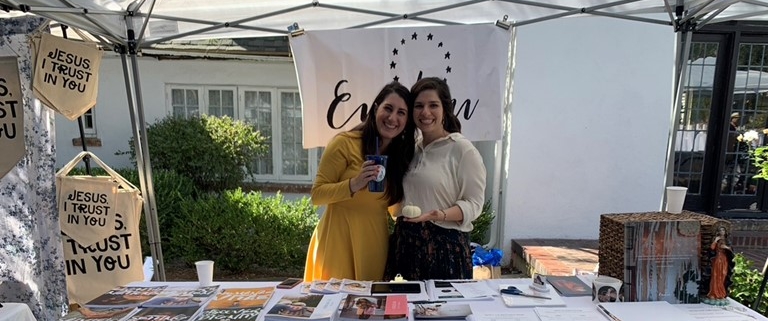Catholic College Graduate Helps Women Understand ‘God-Given Dignity’
A graduate of a faithful Catholic college relies on the formation she received to help educate other Catholic women on the nature and dignity God has given them.
Laura (Billeci) Zambrana serves as Director of Content for Endow (Educating on the Nature and Dignity of Women), which is an international apostolate founded in 2003 that reaches more than 40,000 women across the globe.
“I know I was created for a purpose and that I have my mission—to love God and make Him known—first in my vocation to marriage and family life, and then let this overflow into my work on the Endow team and with our faithful hardworking generous hosts around the world,” explains Zambrana, who graduated from Thomas Aquinas College (TAC), which is recognized in The Newman Guide, in 2009.

James and Laura Zambrana, and their children Peter, Jane, Brigid and Helen. James is a graduate of Franciscan University of Steubenville and Laura is a graduate of Thomas Aquinas College, both of which are recognized in The Newman Guide.
“TAC prepared me for my role at Endow as I navigate which topics to cover, how they should be covered, and most importantly how to curate the material such that the discussion is the focus and the fruit of the experience,” says Zambrana. Endow offers studies on Mulieris Dignitatem (St. John Paul II’s letter on the dignity and vocation of women); on the writings of female saints such as St. Therese of Lisieux, St. Catherine of Siena, St. Hildegard and St. Edith Stein; and other writings of the Church like Catholic Social Teaching, St. John Paul II’s Letter on the Rosary and his Letter on the Christian Meaning of Suffering.
“We want to make the truth beautiful and interesting,” Zambrana continued. “How do we help women on their journey? Not everyone had an education at TAC or a faithful college and all women deserve to know their dignity. We focus on making the riches of our inheritance accessible.”
Going back to when Zambrana was deciding on which college to attend, she explained, “I was a naturally dissatisfied student with textbooks at age 14… When I heard about this school that had no textbooks, it intrigued me.” Zambrana attended the TAC summer program, and it was there that she was able to meet “people like me who also wanted to know the answers the hows and the whys. I became excited to learn after attending the summer program.”
Zambrana says that education, prayer, and friendship are what she values most from attending TAC. “TAC opened my eyes to new horizons. Study for study’s sake, for my humanity, to feed my soul. I am a better wife, mother, friend, and employee because of this unique course of study.”
“I had never experienced the unity of faith and life until I went to TAC. Things like being surrounded by students who make it a point to pray every day, didn’t eat meat on Fridays, and the seamlessness of my teachers and my friends going to class and then to Mass” made a deep impact on her life.
Zambrana also described the “amount of spontaneity and fun that arises at a place where you are all studying for studying sake and praying because that was what we were created to do… a wholeness and not studying just to get a job. The fun and comradery builds bonds of friendship to last a lifetime.”
Now in her work with Endow, “we call women together to study the documents of the Church and the lives of the saints. It is text-based like TAC. The text is the teacher—not the Endow host. The commentary is on the text. It is so similar to my undergraduate experience.”
“Questions for the discussion are an important part of the study guide,” she continued. “The friendships that emerge from Endow hinge on these questions, which are based on the text in the same way that TAC tutors were there to ask the deeper questions.”
Zambrana wants Catholic women across the globe to get a taste of what she experienced during her undergraduate years, through her work with Endow. “We really want to create a culture where women are reclaiming the time for study, prayer, and friendship.”

